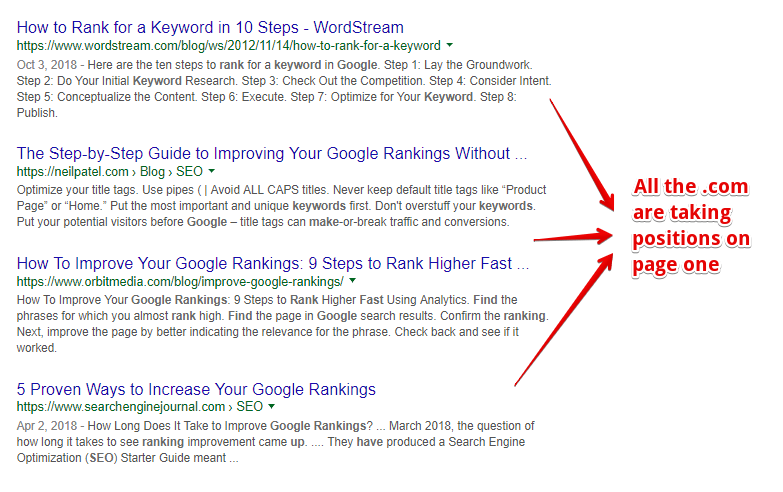A growing number of platforms are now made available for people to create a free website online. There are many discussions about this and the general consensus doesn’t think that it is useful. Still, it serves a bit of purpose, so for the benefit of our beginner friends, I’ll show some exciting stuff that can be done and how one can gradually transition into a more functional site.
What Exactly Is a Free Website?
Companies that provide infrastructure for storing and viewing web files are called hosting and they have special computers called servers that operate this job on a 24-hour cycle. When a site is offered for free, only a small part of a server is used so it doesn’t really have a major impact on their business.
In fact, they gain more exposure because free sites have domain extensions that usually take after the name of the company. That’s why they are often read as mysite.freesite.com. As payment details are never required, they are easy to set up without the need to download any software.
Platforms That Offer Them
The most common one is provided by drag-and-drop website builders. They basically have a graphical user interface on the editor which allows you to use gesture commands to organize different web elements (like video, text, image block and etc.) intuitively during the process of creating a web page.
Many first-timers prefer this type of platform because it doesn’t involve any form of coding and what appears in the editor is exactly what you’d expect to get on the front-end of the site. The hosting services usually come in a few packages with the free plan (subdomain plus a website) being the most basic.

Here are some places where you can get one.
- Wix
- Weebly
- Strikingly
- Jimdo
- Yola
If you’ve read a lot of blogs before, you’re probably familiar with the Blogspot subdomain. This one comes from Blogger, which is a blog-publishing service owned by Google. It’s not exactly a drag-and-drop; more like writing a Word document and publishing it online. Blogspot has been around for a very long time and I think it kind of started the blogosphere in the first place.
The other less known free tool from Google is actually a website builder from Google My Business. This platform is uniquely designed for small business owners who are looking to list their business on the search engines at a very minimal cost. One can add basic business description, a photo gallery as well as short activity posts on the site.
The other platform that is equally as popular is the content management system also known as CMS. It’s more like software that organizes web files in terms of content and the back office has specific programs to facilitate different features that you’d see on the front-end. WordPress is the most commonly used CMS, but there are actually two versions that differ mainly in the hosting aspect.
WordPress.com is managed by a proprietary hosting provider called Automatic and WordPress.org can be hosted by any company that supports the WordPress software. With the first one, the website is basically managed by the company so you have nothing to worry about in terms of updates or program incompatibilities.
With the second one, you have more freedom to customize a site through various plugins and themes. However, self-hosted WordPress is rarely free and they are offered in such a way to promote other types of services. When they are made available, the setup process can be a bit cumbersome and they usually come with limited disk space, except for one which I’ll discuss shortly.
Who Can Benefit From a Free Website?
Diminishing the need to pay for hosting fees can actually help a few groups of people. See if you fit into any of these profiles.
1 – Personal blogging – You may have heard that blogging can help with better self-expression or self-esteem and from personal experience, I can tell you that it’s somewhat true. When I was at the lowest point of my career-life in 2014, I turned to blog as a way to just write my heart out and let go of the negative feelings. It wasn’t easy, but it was surprisingly relieving. Seeing my own thoughts in black and white actually help to put my life into a better perspective. That’s what led to the birth of this blog.
2 – Personal event sharing – I know everyone uses Facebook to share everything, but it’s not always the most professional-looking platform due to all the constant feeds and ads. Ever heard of wedding websites? Well, there are actually dedicated platforms just to journalize this event-of-a-lifetime with your close friends and families to keep them updated. So if you are planning to get married, you should definitely get one 🙂
3 – Student portfolio – Any students who want to have an organized record of their skills, experience, and accomplishment in a particular field can benefit from creating a portfolio website. We see this very often with those specializing in design, art, and crafts where they keep samples of their work to showcase to potential clients or employers.
4 – Short-term events – At zero-cost hosting, many people can leverage from free websites to do basic marketing for their low-budget projects. That means flea-market sellers and community organizers can all share information about their work online without having to worry about eating into their already small profit margin.
5 – Newbies – You know you want a website, but you can’t decide between a drag-and-drop or WordPress. Well, use those free plans to test out the features and see which one is suitable for your needs and budget before upgrading to any plans. This is a crucial step for anyone who is interested in starting a blog or an online business.
6 – WordPress users – And here’s the good news for you guys who are already using WordPress. Have you ever felt frustrated when your site crashed and there’s no one to help recover it? What about that time when you added a new plugin and something went wrong – didn’t you wish you’ve tested it out first?
At times like these, it would be helpful to have good technical support or at least a free WordPress site to test things out before installing them. SiteRubix provides free hosting which allows you to create a site in less than a minute and they offer up to 30 GB of disk space. It is also backed by a strong community of online entrepreneurs and a very efficient technical team.
If you like to have a peek inside, simply launch a free site using the plugin below.
The Disadvantages of Free Websites
In the real world, nothing is actually free and even if it is, there are risks involved. So before you venture too far off, here are some facts you need to know.
1 – Irrelevant advertisement – Some free sites will publish ads on the site because it helps them to generate extra revenue. Whether it’s on the sidebar or at the page footer, it doesn’t benefit your branding, especially if you are talking from the business side of things. It will be obvious to visitors that you are using a free site and the prevalence of ads can be distracting and to some extent, turn people off.
2 – Using a subdomain, in the long run, isn’t going to help viewers remember your site because of the string of words and sometimes numbers. From the search engine’s perspective, they almost always NEVER rank on the first page of Google. Sites that usually dominate these positions are those who invest in custom domains such as .com or .net. Basically, that would only cost about $15 per year.

3 – A hosting company usually doesn’t provide a lot of resources from its servers to maintain free sites. It’s not cost-effective, hence it’s not uncommon to see less performance in terms of bandwidth, storage space, and page loading speed. Everything will be much slower and smaller and this cumulatively leads to the lack of engagement on the site.
4 – A free website is clearly not your property and since it belongs to the hosting providers, they get to have the final say. That means, if they discontinue the free plan, there’s nothing much you can do about it and you are at risk of losing all the web files if the information isn’t backed-up regularly.
5 – Likewise, you aren’t allowed to sell or monetize from a free site. Hence, this is certainly not a platform of choice for retail businesses, affiliate marketers or store owners because there’s no way you can integrate a proper payment system for processing customer orders.
6 – When it comes to the template designs, there’s nothing much to be expected. To date, only self-hosted free WordPress offers the most – more than 1000 over selections – in a variety of niches. Other platforms will only give you a small handful.
7 – Lastly, if you are thinking to measure the traffic performance of the site, there’s almost no way to install Google Analytics on free plans. Without this, you wouldn’t have any insights into the audience’s behaviors and how to achieve your online goals.
I could go on forever, but after reading these seven points, I think you are getting the message here.
When To Switch to Paid Hosting?
The rule of thumb is quite straightforward. If you just want to create free websites online for personal or short-term usage, that’s absolutely fine. But if you have something at stake, such as branding, getting more traffic or growing an online business, then you should seriously consider a custom domain and switch to better quality paid hosting instead.
My Recommended Hosting Platform
My choice for a website platform has always been self-hosted WordPress. That was how this blog started its journey in 2014. Even though it comes with a bit of a learning curve, I don’t think I would be able to do so much of content writing using other types of platforms.
I think it’s a good choice for bloggers as well as small business owners. If you like to get more in-depth training on how to master WordPress and monetize from it, do check out my recommended training program for the details.
Do you have any questions or comments about website creation? Just leave them in the space below and I’ll get back to you.

I see that there are different options to create a free website, but by far, the best one would be through SiteRubix’s hosting that you mentioned. It comes with a community-based training program and I think they are one of the best platform for anyone who’s new to online business creation.
Personally, I would go for a .com any time. It’s so inexpensive and they are worth ranking for in the long run.